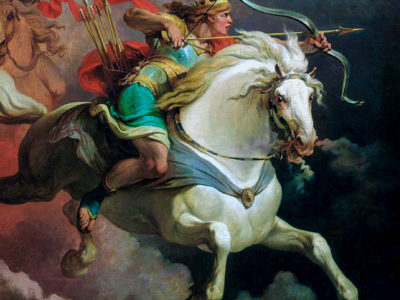I’M TOO YOUNG TO REMEMBER the Cuban missile crisis, when the world teetered on the brink of a nuclear shootout between America and the Soviet Union.
Insiders alert at the time were terrified.
I wonder if that depth of fear is what many Americans feel now, on the brink of inaugurating a president who many seem to agree is emotionally unstable. They base that on reading one jarring tweet of his after another. And on his preliminary political positions that seem to reject compelling evidence.
For example, he warms up to Russian dictator Vladimir Putin, who says nice things about him, but who is opposed to most everything the United States used to stand for—and who is even now being punished for ongoing cyberattacks against our nation.
It’s unnerving to many Americans that we have given such power to a man who seems to follow compliments, wherever they lead.
And there’s that troublesome bullet list of characteristics and behaviors that many argue would disqualify anyone from anything but a cell and three square meals a day.
First Lady Michelle Obama said we are entering a time of hopelessness: “We are feeling what not having hope feels like.”
How a prophet handled hopelessness
I would bet that most people don’t know there’s a book in the Bible called Habakkuk.
It’s named after a prophet who lived at what appears to have been the end of the Jewish nation. His words seem to predict the Babylonian invasion of 586 BC, when the armies of King Nebuchadnezzar from what is now Iraq erased Israel from the world map.
Invaders destroyed the world’s only Jewish temple and the city with it—leveling Jerusalem. Most Jews lucky enough to survive were exiled to what is now Iraq.
The Jewish nation was gone.
When God told the prophet what was coming, Habakkuk wrote these words:
When I heard this, I started shaking all over. My lips quivered. My legs gave way; I couldn’t even stand. All I could do was lie there and shake. I’m waiting now for the inevitable: the invasion.
When our fig trees don’t blossom anymore
And our grapes don’t grow on the vines
When our olive crops disappear
And our fields produce no food at all
When our sheep have been taken
And our cows are gone
Even after all of that, I will thank God. He is my Savior.
The Lord God himself gives me strength.
He puts the sure-footed speed of a deer in my feet
and he leads me on to a higher place than this.
Habakkuk 3:16-19, Casual English Bible
Not that I’m predicting the end is near
I’m just saying it seems to feel that way to many people.
And in case they’re right, the prophet Habakkuk has been there and done that.
Casual English Bible Leader’s Guide & Atlas for Luke


When I realized that I had 4 Steven Miller books already in my library without realizing it, then how resourceful each has been, I knew it was time to become acquainted with this author! Thankfully I find commonality in our backgrounds including Nazarene study on occasion, along with Baptist and even Pentecostal. I presently am serving God as an Evangelist maximizing prophetic scripture in calling individuals to rebirth or renewal. My next order will include your book on Prophecy. I love your work. May God Bless your efforts!
Thanks Carey. Good luck with the prophecy theme. That was actually my hardest book to research and write because prophecy is so easy to exploit and use to manipulate people. I had to try to find a balance in reporting the different ways Christian scholars read and understand Bible prophecies. Peace to you.